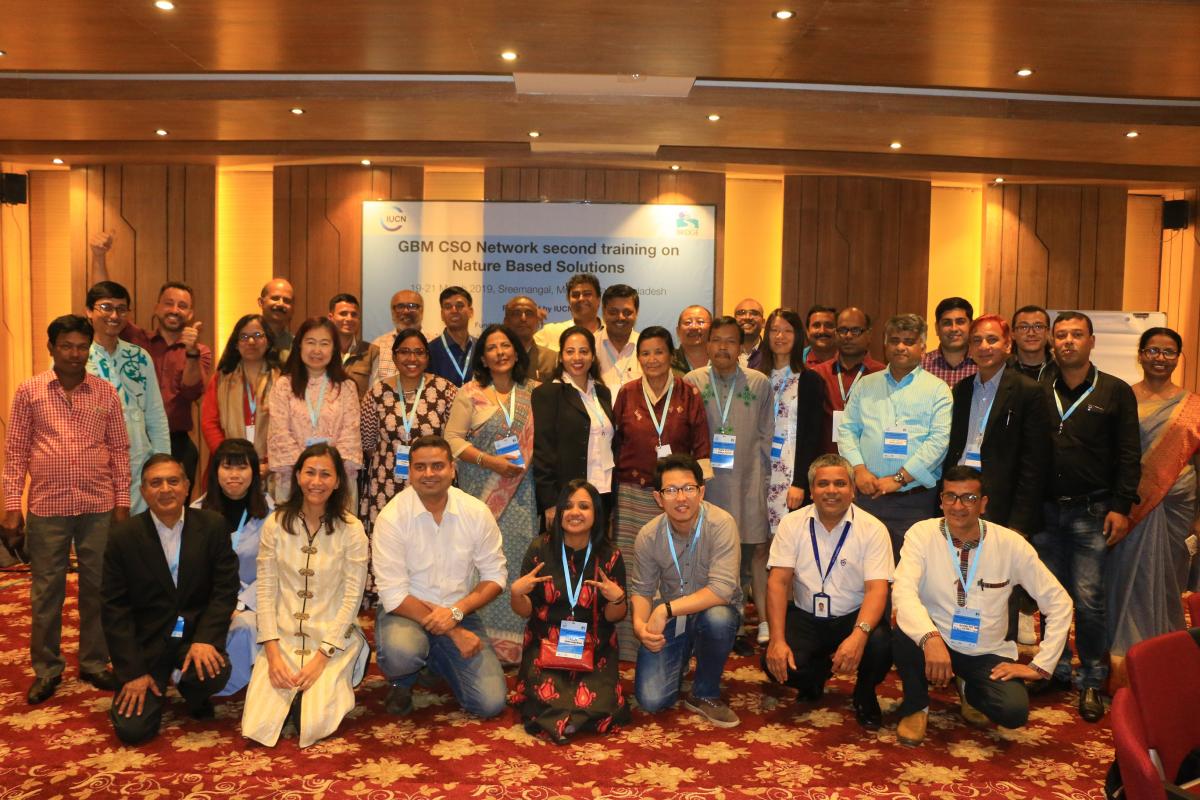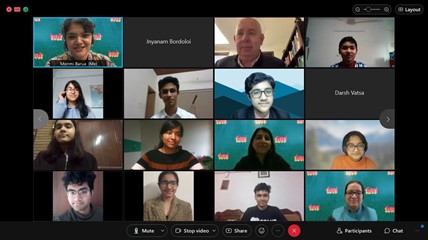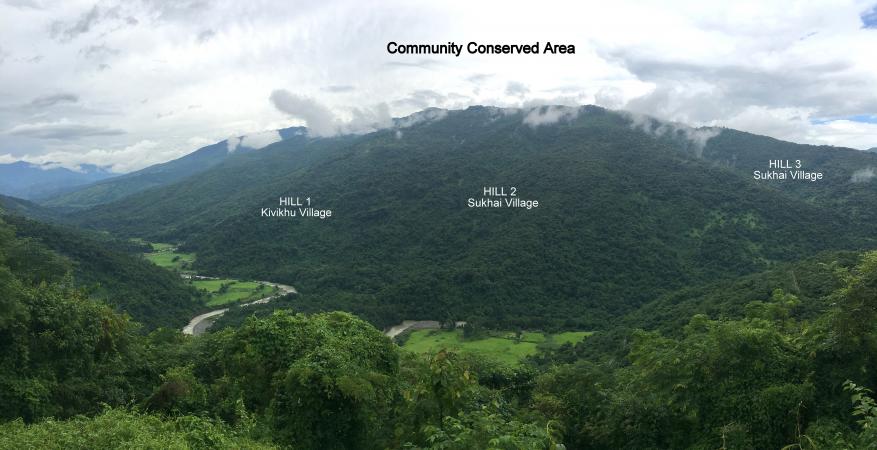World Water Day: Applying nature-based solutions to improve water management in the Ganges-Brahmaputra-Meghna region
From 19 to 21 March, the BRIDGE GBM Civil Society Organisation (CSO) Network, through the BRIDGE Ganges-Brahmaputra-Meghna (GBM) programme facilitated by IUCN, organised a workshop in Sreemangal, Bangladesh, on the week of World Water Day. The workshop aimed to enhance CSO understanding of Nature-based Solutions (NbS), and help CSOs better document NbS best practices related to water management in the basin.

Photo: IUCN
Over 30 CSO representatives learned about NbS standards, tools and approaches IUCN pioneered and developed at the global level. They also learned how to present their project interventions and findings through case studies.
“Water management in the GBM region is heavily dominated by ‘business as usual’ approaches. NbS include green infrastructure that can substitute or work in parallel with grey infrastructure in a cost-effective manner, while also providing benefits for biodiversity and human well-being” said Raphael Glemet, Senior Programme Officer, Water and Wetlands Programme, IUCN Asia. “There is plenty of potential for NbS to address water management challenges, such as climate change, water scarcity and natural disaster reduction, in the region.”
On the second day of the workshop, participants experienced NbS best practices first-hand, through a field visit to Hail Haor, one of Bangladesh’s largest wetlands. The wetland is sustainably managed to conserve biodiversity as well as to provide services to surrounding communities. Through a guided site analysis, which included interviews with local communities and government representatives, participants learned how to assess ecosystem services. This process became the basis for individual NbS case studies, drafted on the final day of the workshop under the guidance of NbS experts, peers and IUCN facilitators.
Over the next three months, the GBM CSO Network will be finalising these case studies and compiling them into a catalogue which they will promote as examples of best practices in the region.
“As CSOs, we are on the frontline of implementing projects that benefit society, and in particular, local communities. This gives us valuable insights on how NbS works. Workshops like this gives us the opportunity to share our knowledge and learn from others working on similar issues, and to be able then to advocate for their integration within policies,” said M. Mokhlesur Rahman, Executive Director, Center for Natural Resource Studies.
While some BRIDGE CSO network members are increasingly becoming aware of the importance of NbS, a large number of members have already been developing solutions that have contributed to improved water management in the GBM region. However, a BRIDGE GBM workshop held last June in Nepal revealed that these solutions are often not adequately documented or widely shared – thus limiting their potential of being replicated and scaled up across the region.
NbS are “actions to protect, sustainably manage, and restore natural or modified ecosystems, that address societal challenges effectively and adaptively, simultaneously providing human well-being and biodiversity benefits.” NbS are basically healthy ecosystems that are better able to support human beings, therefore improving ecosystems can also improve human well-being.
The GBM Basin is home to approximately 620 million people in five countries – China, Bangladesh, Bhutan, India and Nepal. They all depend on the basin for their survival. NbS are viable means to both reducing pressure on ecosystems and improving the lives of the basin’s inhabitants.
Many CSOs in the region work with local communities and understand the impact of water management issues on the ground. These organisations could potentially play a greater role in sustainable transboundary water management. However, most CSOs do not have access to the technical knowledge or the capacity to effectively influence policy on shared water resources. As a result, the CSO community continues to have relatively little impact on regional water dialogues and decision-making processes.
“By developing and sharing these case studies, CSOs - and other key water management stakeholders - will be able to learn from one another and adopt best practices in the region,” said Ann Moey, Head of Communications, IUCN Asia. “Knowledge sharing is a vital component of development and conservation work. However, it is something that is often overlooked in practice.”
This year’s theme for World Water Day is 'Leaving no one behind'. Through the BRIDGE GBM programme, CSOs are given the opportunity to come together and effectively work alongside one another across borders, to support the effective management of transboundary rivers in the GBM region.
About BRIDGE GBM
The BRIDGE (Building River Dialogue and Governance) project is facilitated by the International Union for Conservation of Nature (IUCN) and is funded by the by Transboundary Rivers of South Asia (TROSA) programme of Oxfam. The project has been facilitating a regional network, called the GBM BRIDGE CSO Network, of more than 30 CSOs from the five GBM countries (Bangladesh, Bhutan, China, India and Nepal). With IUCN acting as the secretariat, the GBM CSO Network drafted a common vision, A civil society vision for connecting the people of the Ganges-Brahmaputra-Meghna (GBM) river basin, which was launched in October 2017 in Dhaka, Bangladesh, and aims to support the cooperative management of the GBM basin.



